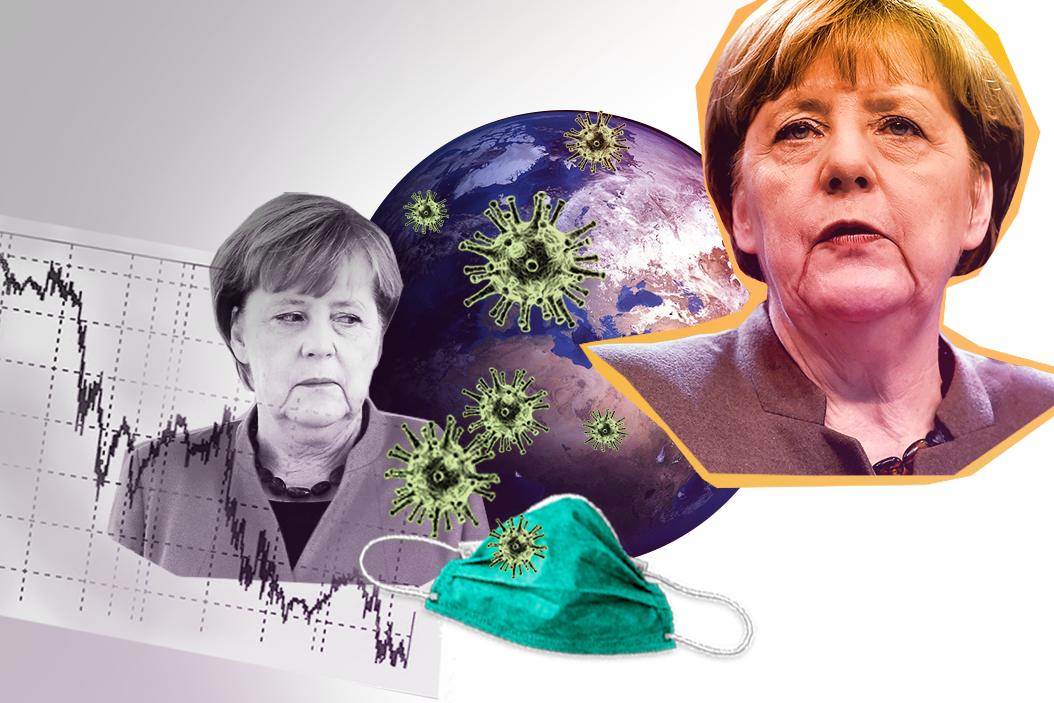Six months ago, after 14 years in power, German Chancellor Angela Merkel's star appeared to be waning. Her coalition government was taking a hit in the polls, prompting some members of her once-loyal bloc to go rogue. Meanwhile, the European Union was as fragmented as ever, and concerns about Merkel's health sparked rumors that she could be forced to hand the reins over to a successor even before her long-planned move to step down next year.
Now, Merkel's competent handling of the COVID-19 crisis in Germany has burnished her image at home and abroad. What will this mean for her political legacy?
Pragmatist-in-chief: Merkel's long political track record suggests that Germany's success at managing the outbreak — it has recorded fewer COVID deaths per capita than the US states of Arizona, Florida, and South Carolina — is at least partly attributable to the chancellor's demeanour and leadership style. A trained scientist, Merkel has long been known for her cautious, analytic, and measured approach to problem solving.
While countries like France, Italy, and Spain were caught off guard as COVID-19 began sweeping Europe, Merkel's evidence-based thinking prompted her to quickly assemble an integrated coronavirus task force made up of the country's university medical faculties to help steer the federal response. And it worked. Germany rolled out one of the most efficient testing and tracing schemes in the world. It also allowed Merkel to ditch her "lame duck" image, with 82 percent of Germans now saying that she has done a good job weathering the COVID storm.
How will Merkel use this momentum? The chancellor's return from the political dead comes just as Germany takes over the European Union's rotating presidency for a six-month term. Merkel will now be charged with steering the bloc out of the worst global recession in decades. (The Euro area's economy is forecast to contract by more than 10 percent this year, according to the IMF.)
Merkel said recently that "extraordinary circumstances call for extraordinary measures," abandoning her usually-cautious approach. Together with France's President Emmanuel Macron, she has called for a whopping 750 billion euro bailout fund for the bloc, the bulk of which would be borrowed from financial markets and given out as grants rather than loans. This is a remarkable about-face for the usually tight-fisted German government (other northern European countries, such as Austria and the Netherlands, are strongly opposed). But Merkel's sense of urgency about the peril facing the European Union seems to have overridden her natural fiscal caution. "For Europe to survive," Merkel said recently, "its economy needs to survive."
Indeed, given the size of Germany's economy — it's the biggest in the eurozone, accounting for more than a quarter of the bloc's economic output — and the fact that the German Federal Bank is the most powerful central bank in Europe, Berlin's cooperation is critical to any EU plan.
If Merkel can pull off this recovery effort, holding the EU project together economically despite its deepening political divisions, it would be a remarkable legacy for a leader whose management of past crises has mostly deepened rifts within the 27-member bloc.
Recall Berlin's handling of the European debt crisis in 2009, where Merkel insisted that highly indebted countries like Greece and Spain impose tough austerity measures. Despite eventually softening her position, Merkel's approach stoked resentment of Germany's political and economic clout. Similarly, Merkel's handling of Europe's refugee crisis in 2015, where she pushed for quotas that would force poorer countries to accept refugees, helped fuel the rise of right wing populists and Euroskeptics in the UK, Italy, Hungary, Poland, and Spain — and gave renewed emphasis to identity politics within Germany itself.
The road ahead: As pandemic-induced economic pain deepens in the months ahead, Merkel will surely have her job cut out for her. But now that she has her groove back, can her final act be to rescue Europe?
- What went wrong in Germany? - GZERO Media ›
- What went wrong in Germany? - GZERO Media ›
- German election campaign full of drama and uncertainty - GZERO Media ›
- Angela Merkel's punk rock farewell, Iran nuclear talks resume - GZERO Media ›
- Merkel's White House visit will have symbolism and substance - GZERO Media ›
More For You
On Ian Explains, Ian Bremmer takes a look at the growing surge in global conflict and the ripple effects of so much violence, war, and armed struggle throughout the world.
Most Popular
Think you know what's going on around the world? Here's your chance to prove it.
The European Union just pulled off something that, a year ago, seemed politically impossible: it froze $247 billion in Russian central bank assets indefinitely, stripping the Kremlin of one of its most reliable pressure points.
Big global stories. Real conversations with world leaders. Our award-winning global affairs show, GZERO World with Ian Bremmer, goes beyond the headlines on the stories that matter most. Here’s a look back at the 10 most quotable moments from this year’s episodes.
